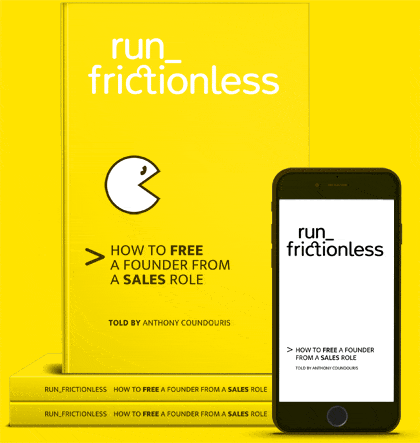
Podcast: say bye-bye to beg mail
>
Podcast: say bye-bye to beg mail
I had the privilege of joining Bruce Scheer on his acclaimed podcast show Sales Conversation. The topic for our discussing is how to encourage salespeople to cease writing beg mail, and begin writing value mail.
It is common practice for salespeople to pester the customer with beg mail. I’ve noticed this behavior is common in firms that lack a sales process. Salespeople resort to high-pressure sales techniques to close the deal or beg for a decision.
Listen to the podcast
Retailers are great a creating sales systems. They plan every square inch of their retail spaces. Point of sale, cameras that observe customer traffic to the location of the checkouts. They develop enormous manuals that shopkeepers follow.
Internet startups are notoriously bad at building sales systems. I fear many CEOs and sales organisations don’t know what it feels like to become a customer of their business.
Before we build a sales system we like to gather intel on competing sales systems.
In 2016 we gathered intelligence on competitors from a sector called umbrella companies. It’s a fancy name for a type of business that supports contractor workers from the UK.
We discovered 70 percent of companies would have a single valuable interaction with their customer, and thereafter beg the customer for the business. These were not startups. The organisations each were clearing 20M pounds or more per annum in revenue.
We have gathered intelligence from a broad range of industry sectors and the results have been similar. 70 percent of organisations shoot beg mail to customers.
Beg mail is where the salesforce call or messages a customer and beg for a decision. Beg mail sounds something like this:
The first of its kind, you could call a ‘follow-up’ email. Every email like it thereafter is beg mail.
Beg mail ruins any credibility built in the early game. The more beg mail the salespeople fire at the customer, the more credibility the organization loses.
The company that sends value mail has the advantage. They remain confident and relevant throughout the buying decision.
Every sales system, no matter how well-designed, presents the customer with friction. Friction slows the customer from reaching their goal, and equally slows the sale.
Friction points are where customers get stuck in a sales system, either because they don’t understand what to do next or what is being demanded of them is too time-consuming. Beg mail is a source of sales friction. When customers encounter overwhelming friction, they drop-off.
I have seen salesforce fire bulk beg mail to an entire group of customers. In the click of a button, they assassinate leads from the middle game, killing any chance of an endgame.
The goal of a sales system is to help the customer achieve their goal. Beg mail just fills up a customer’s inbox with junk and makes their job more difficult. Beg mail smells of desperation. It is the end of the month, and I need to make quota. It comes from a focus on the self, and not the customer.
Key takeaways
Learn more






